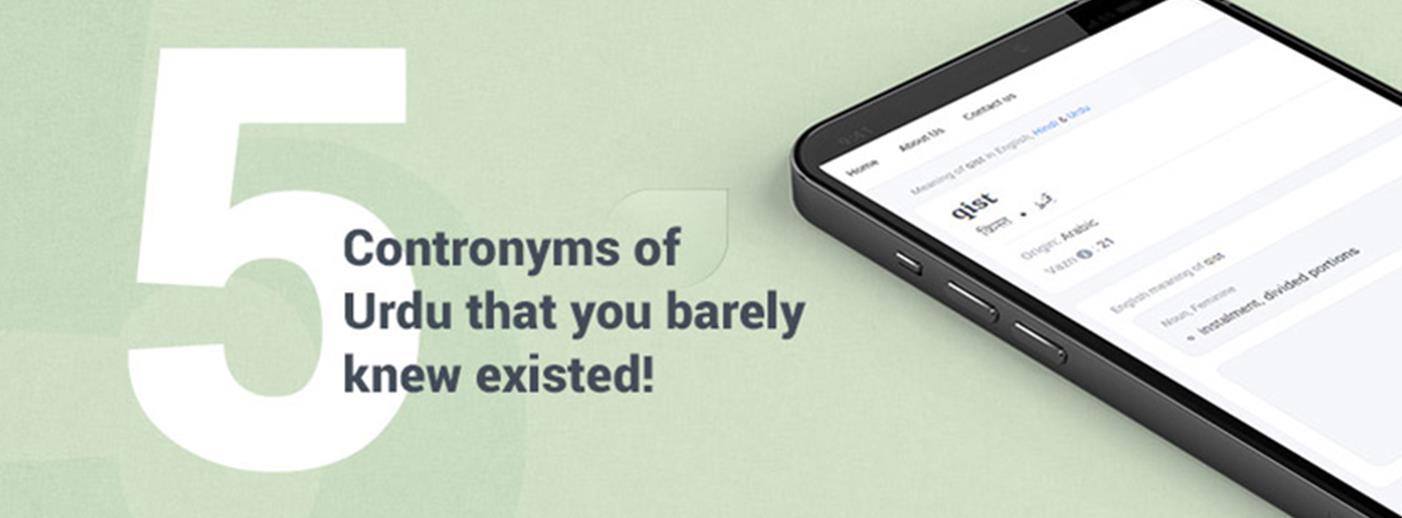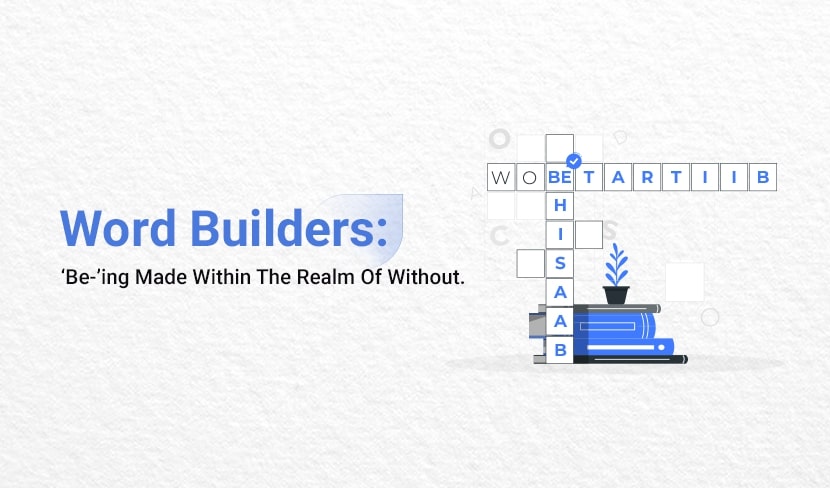Top searched
Saved words
khisyaanii billii khambaa noche
an embarrassed or ashamed person tends to vent his/her feeling by quarrelling
be-niyaaz
without want, free from want, wanting nothing, not in need, able to dispense, independent, carefree
5 Contronyms of Urdu that you barely knew existed!

Just like humans, words, too, can sometimes behave contradictorily. Thankfully, we have a term for those words that have this strange linguistic condition – Contronyms, or Janus words.
In Roman mythology, Janus is considered the God of duality, and to mark this distinct quality he is depicted as two-faced; one looking forwards, the other backwards. And that’s how contronyms got their second name, Janus words, as their meanings face oppositely.
The English language is brimful of these words. Take sanction, it can mean to be both an approval to do something, and a curb upon an action indicating disapproval. Or, the verb ‘to trip’, which can mean to travel around while also meaning to fall or stumble, as in, ‘he tripped right there’ and, many other words.
In Urdu poetry, too, we come across many such words where poets skillfully camouflage one meaning for the other. But this play on words and meanings goes well beyond the confines of poetry; our everyday words like bahut, kam, thoda, aur, haan, nahin, kal, achhaa, bura all can qualify as contronyms.
Today, however, we’ve dived deep into the Rekhta Dictionary and piggybacked for you 5 known-unknown words that’ll both charm and surprise you, creating a Janus Effect; if that’s what they call it.
1. Maula
That’s one word we’ve all heard of. We know it means Lord, God, the Supreme, right?
Right. But what we barely know is that Maula also means a slave, a servant.
Theologically, it means a slave that has been set free or released. For more on released slaves, don’t forget to read our piece on the word Tahrir. Just more food for thought.
2. Avezish
Dast-Aavez is a word we’ve been hearing for ages. It comes out in the sense of a document, although it literally means ‘something held or suspended in one’s hand’.
Avez in Persian means suspended, or laTkaa hua. Thus, Avezish means ‘to hold something’; but here comes the twist – it can mean both ‘to hold’ and ‘to hold-off’.
Therefore, Avezish means both affection (to hold tight), and enmity (to hold-off).
There you go, a word that fits in perfectly for all the double-faced ones around!
3. Wa’da
This is an easy one, Wa’da means promise, that’s it, no two ways about it, right?
Wrong.
Yes, it does mean a vow to keep one’s word sometime in the future, but this is where Janus’ other face comes in. Wa’da also means a threat, a warning – something like, ‘tu baahar miliyo.’
Now is a good time to think whether you want the Wa’da to be fulfilled or not.
4. Qist
Qist basically stands for justly divided portions, parts or measures. But as with other words on this list, Qist, too, can bite us in the behind.
Qist essentially means ‘being unjust’, or Naa-insaafii, as we call it. Additionally, it also means scattering, dispersing (bikhernaa).
To sum up, it’s just unjustness resulting in justness. Let that sink in.
5. Lahn
Urdu poetry lovers must recognize this word, it means ‘reciting something with a tuneful pronunciation’.
That’s some definition! In short, it means a sweet-sounding musical tone, or ‘dhun mein bolnaa’.
But besides this ‘sweet-sounding’ meaning, there exists this word’s disturbing side. Lahn also means an error in pronunciation, or slipping up on a word.
So, it’s like hitting the right notes, but singing the wrong words!
Something that’s happened with the word Qist, for it is what we nowadays wrongly pronounce as kisht - an installment, or EMI.
This list can go on and on, still I’d say ‘bahut hai’.
Delete 44 saved words?
Do you really want to delete these records? This process cannot be undone





